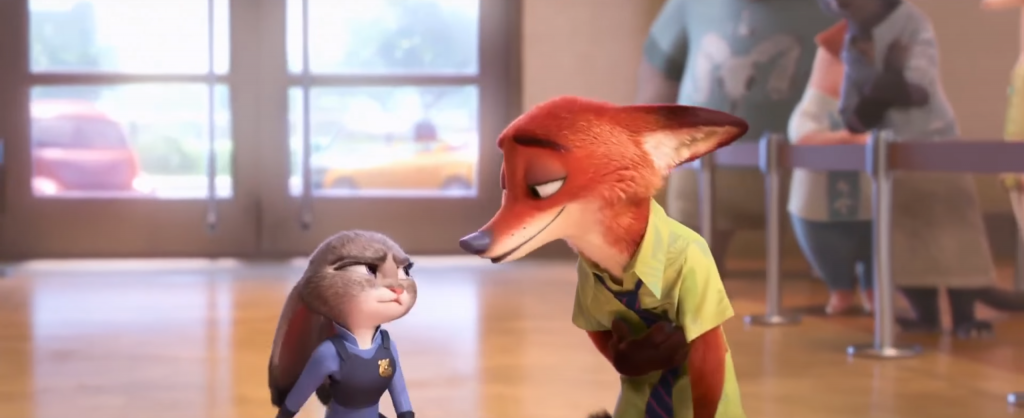Warning: This post contains some major spoilers for “Zootopia,” and possibly “10 Cloverfield Lane.”
“Zootopia” might just be Disney’s best movie in a long time. Take that, “Frozen.”
Anyway, it was great. I am always happy to see animals onscreen acting like people. However, “Zootopia” takes it anthropomorphic to the next level, suggesting that these civilized animals aren’t far off from reverting to their predatory instincts.
When I write about a movie, I try not to resort to nitpicking. However, I have a nit to pick with “Zootopia,” and it feels a little more like an itch that I just can’t scratch.
The film makes use of a repeated plot device that almost becomes a MacGuffin. Judy (Ginnifer Goodwin) possesses a carrot-shaped pen (she’s a rabbit, you see) that also doubles as a recorder. It is an odd possession that gets her and her fox companion Nick (Jason Bateman) out of trouble many times over. In such a brilliantly-realized animated world, this little thing is causing me so much trouble.
You see, this is not the first time a recorder has been used as a plot device in a movie, but I really hope that it is the last.
This trope goes back a long time.
It’s first use can’t be recorded. Some say it’s first use was in an early version of “The Odyssey,” when Odysseus uses a recording to bring Polyphemus down. Sure, you can say I made that up, but it sounds like a lot of modern Hollywood storytelling.
Protagonists tend to bring down the bad guys by surreptitiously recording them, then playing that recording in a public place just in time for the villain to be arrested. “Zootopia” uses it as well. First, Judy cleverly uses the carrot pen to blackmail Nick into helping her crack a case. Later, the same pen records a conversation that gets the mayor (Jenny Slate) thrown in jail.
I am not picking on “Zootopia” alone, as it is a cog in a much bigger machine. But screenwriters need to stop leaning on the recording device. It is an easy way to escape from writing more interesting and difficult consequences for characters.
I can think of a wide-range of movies that have done it. “Monster’s Inc.” ends with a convenient recording. The evil real estate developer in “Dirty Work” is brought down by Norm MacDonald, who conveniently records all his thoughts. So does “The Room,” but that is the least of that movies problems.
Noticed I used the word “convenient” when describing some of the movies above. That’s what this trope really is: an easy way out. It is simple to just lean on technology as a crutch but doing so undermines your characters. As small animals, Judy and Nick are great at outfoxing (sorry) most of the bigger mammals that inhabit Zootopia. They fight with their wits to the end, but the recording just feels unnecessary.
It is possible to write a great movie, and a great thriller, without technology. However, that is increasingly harder in today’s world where technology is literally impossible to escape. This is why I am thankful for something like “10 Cloverfield Lane.” In the first few minutes, the main character can’t find a single bar of service. This results is one of the greatest escape scenes in recent cinematic history.
“Zootopia” is a wonderful movie. I have been thinking about the DMV scene in my head over and over again and giggling to myself any chance I get. This is a truly great animated movie, but it feels almost like a betrayal of its smart nature to let the characters cheat their way out of trouble that easily in the end. Anyway, I’m not mad at “Zootopia”: I’m mad at technology that allows movies to always take the easy way out. I guess my message is that screenwriters should try harder and also you should go home and destroy your iPhone.

